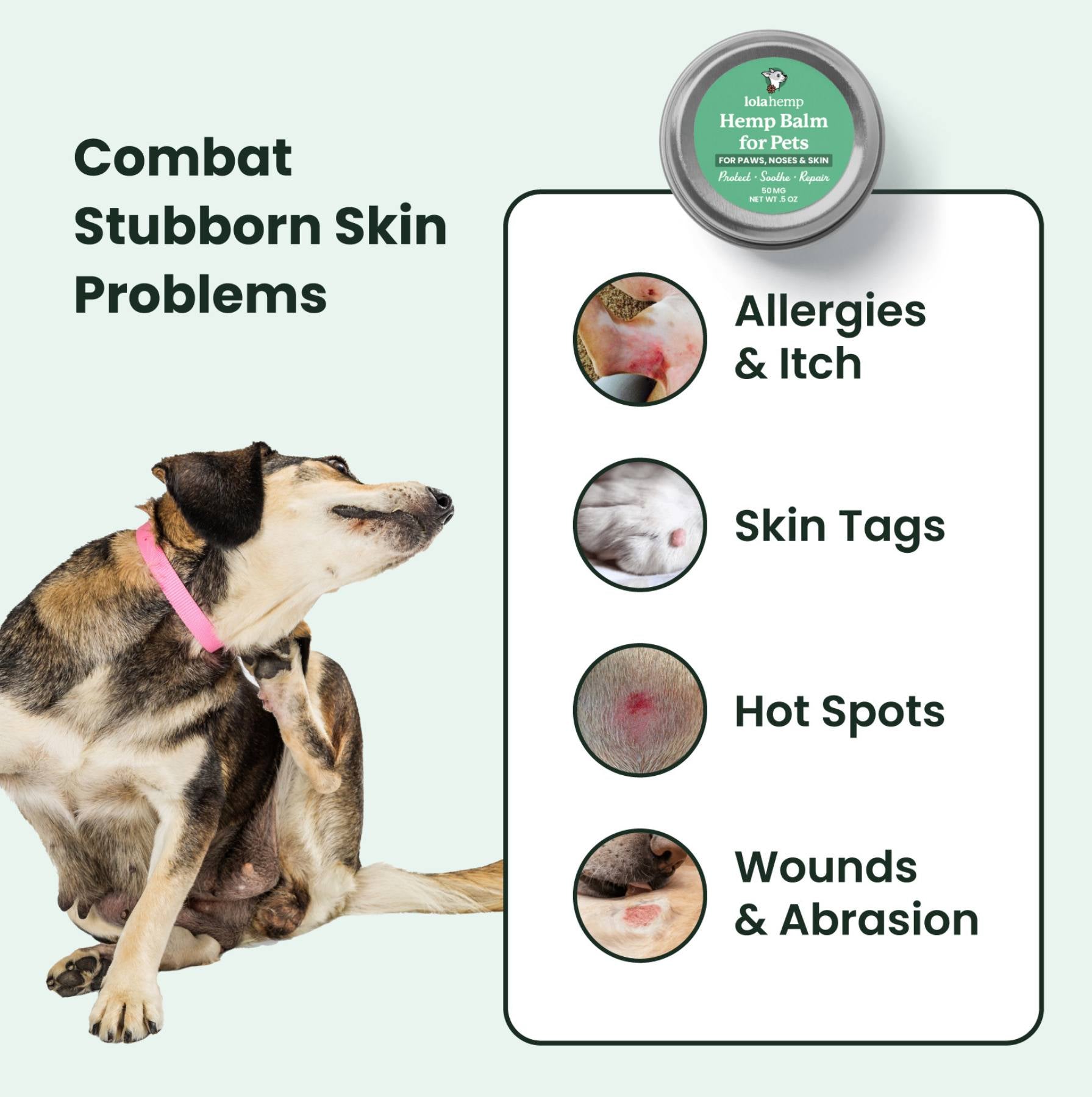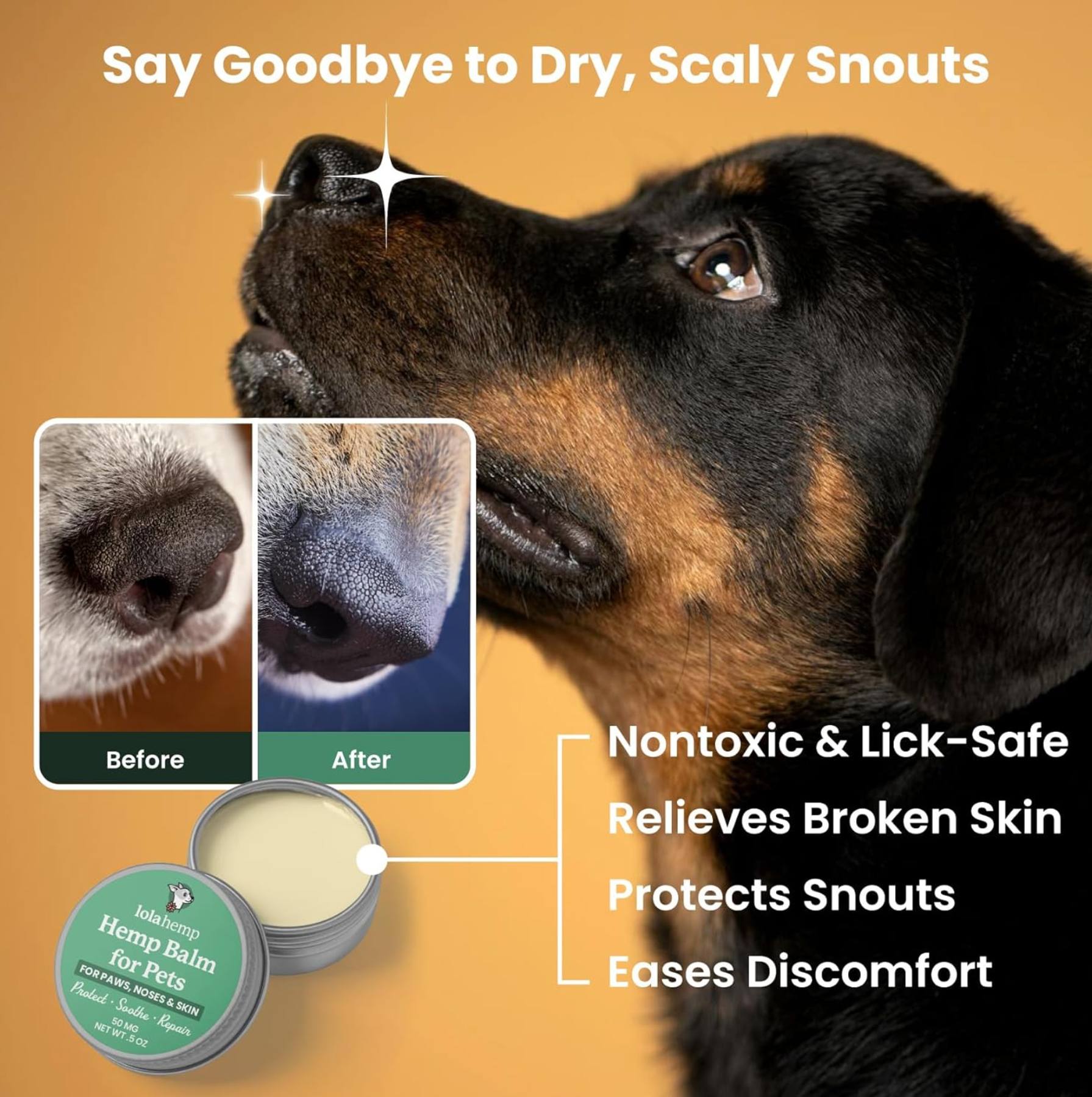Have you ever been told that your dog might have allergies, or maybe you've noticed signs that make you wonder if they do? It can be frustrating, because allergies in dogs aren't always as simple as they seem.
Basically, allergies happen when your dog’s immune system mistakenly reacts to something harmless, like certain foods or environmental triggers. There are different types of allergies dogs can have, like skin, food, or environmental allergies. And to make it even more tricky, the symptoms can overlap, so figuring out exactly what's causing the problem can take some time. But understanding the type of allergy is the first step in helping your dog feel better.
What are The Symptoms of Allergies in Dogs?
Allergic reactions in dogs can look very different depending on the type of allergy. For example, if a dog goes into anaphylactic shock, you might see a sudden drop in blood pressure and shock, which is a medical emergency. On the other hand, common allergic reactions like skin irritations tend to show up in ways you can manage at home, but they still require attention.
That said, here are some typical signs that your dog may be dealing with an allergic reaction:
- Itchiness: This is one of the most common signs of allergies, whether on the skin, ears, or paws.
- Hives or Bumps: Raised red welts on the skin that are often itchy and can vary in size.
- Swelling: Look for puffiness around your dog's face, ears, lips, or even eyelids.
- Red, Inflamed Skin: This is often a result of your dog licking or scratching a sensitive area.
- Gastrointestinal Issues: Diarrhea or vomiting can be signs that your dog’s digestive system is reacting to something they’ve eaten or come into contact with.
- Sneezing or Coughing: Just like humans, dogs can sneeze or cough when their respiratory system is triggered by allergens.
- Itchy, Runny Eyes: Watery or itchy eyes can happen when your dog is exposed to environmental allergens like pollen or dust.
- Chronic Ear Infections: If your dog constantly scratches their ears or you notice foul-smelling discharge, allergies could be the culprit.
- Constant Licking or Chewing: Dogs may lick or chew excessively as a way to soothe irritated skin or paws.
Since some of these symptoms can also be linked to other health conditions, it’s important to monitor your dog closely. If any of these signs become frequent or worsen, a visit to the vet is crucial for an accurate diagnosis and proper treatment.
Common Allergic Reactions Your Dog May Experience
There are four common types of reactions that your dog could experience; skin reactions, hives, face swelling, and anaphylactic shock. Let's take a look at each of them in more detail.
1. Allergic Skin Reactions
Skin allergies are one of the most common issues dogs face, and they can stem from several different sources. The main culprits include fleas, food, and environmental factors. Here’s a breakdown of how each one can affect your dog and what you can do about it:
Flea-Related Allergies: Flea allergy dermatitis occurs when a dog has an allergic reaction to the saliva of fleas. This can cause intense itching and irritation, especially in areas like the back, tail base, and neck. The skin may become red, scabbed, or inflamed. Fortunately, flea-related skin problems are often the easiest to treat with appropriate flea control medications. However, ongoing prevention is necessary to avoid future flare-ups.
Food Sensitivities and Allergies: Dogs can be allergic to certain food ingredients, which can lead to skin issues. Itching is commonly noticed on the ears and paws, and dogs may also experience digestive symptoms like diarrhea or vomiting. While food allergies are not as frequent as other types, they can still be significant. The symptoms of food allergies are usually more severe, and they may require dietary changes or a more thorough investigation by your veterinarian.
Environmental Allergens: Many dogs suffer from allergies caused by things like pollen, dust mites, mold, or even certain grasses. These allergies are often seasonal, making it easier to pinpoint the trigger during specific times of the year. Skin reactions typically affect the paws, ears, face, and belly. In addition to itching, affected dogs might experience swelling or redness in these areas.
Secondary Infections and Treatment
A major concern with skin allergies is the risk of secondary infections. Persistent scratching, licking, and biting can break the skin and expose it to harmful bacteria or yeast. This can lead to infections that require additional treatment. Promptly addressing your dog’s allergy symptoms and seeking veterinary care can help prevent complications.
2. Facial Swelling Reactions
When your dog experiences swelling in the face, throat, or even the eyelids and ear flaps, it can be quite alarming, but rest assured, it's usually not life-threatening. This reaction may look severe, but it's often a sign that the body is processing the allergic response.
The swelling generally appears within 30 minutes to a few hours after exposure to an allergen, often accompanied by hives. A veterinarian may administer an antihistamine injection to reduce the swelling.
3. Anaphylactic Shock
Anaphylactic shock is a severe allergic reaction that can be life-threatening and requires immediate attention. Symptoms include difficulty breathing, swelling, vomiting, collapse, and more. If you suspect anaphylaxis, get your dog to a vet immediately.
4. Hives
Hives, also known as urticaria, are raised, red, itchy bumps on the skin. They often appear shortly after exposure to allergens. While not dangerous, they can be uncomfortable and may require antihistamines or corticosteroids.
How to Diagnose & Treat Your Dog's Allergies
Diagnosing and treating allergies starts with observing symptoms and consulting your veterinarian. Allergy tests such as blood tests, skin tests, or elimination diets may be recommended.
Treatment may involve antihistamines, corticosteroids, dietary changes, flea control, or topical therapies. Long-term management includes avoiding known allergens and using soothing skin products.
Frequently Asked Questions about Dog Allergies
1. Can Dogs Be Allergic to Cats?
Yes, dogs can be allergic to cats. Symptoms may include itching, sneezing, watery eyes, or skin rashes.
2. Can Dogs be Allergic to Gluten (or Have Celiac Disease?)
Yes, dogs can be allergic or sensitive to gluten, though it’s uncommon. Symptoms may include digestive issues, itchy skin, or poor coat condition.









